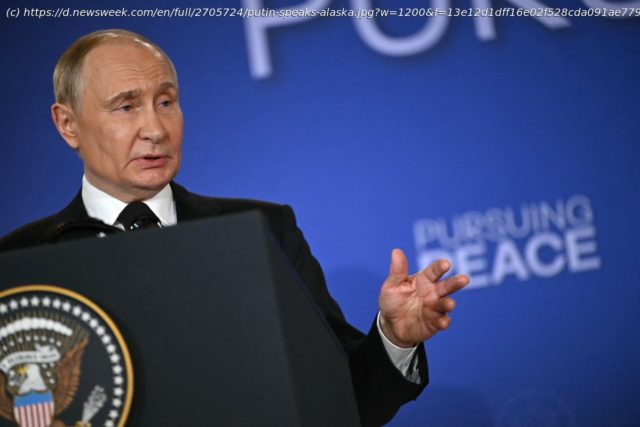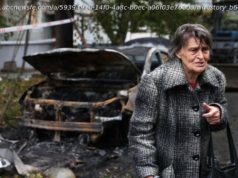Putin seeks „a multilateral system of commitments that includes not only the West but also Russia itself,“ one expert told Newsweek.
Russia, Ukraine and European powers have all emerged from meetings with President Donald Trump in support of establishing security guarantees as part of a broader agreement to put an end to the bloody war between Moscow and Kyiv.
Trump vowed to commit to Ukraine’s postwar defense during his meeting with Ukrainian President Volodymyr Zelensky and European leaders on Monday, a move welcomed by his visitors. He said Russian President Vladimir Putin had also agreed to accept guarantees on Ukraine during their meeting in Alaska on Friday in what the U.S. leader described as a „very significant step.“
What such guarantees look like, however, remains a core sticking point among the parties to the conflict, and efforts to find a common definition may be crucial to achieving a breakthrough.
„The key issue with security guarantees lies in the differing understandings of their modalities“, Alexander Chekov, lecturer at Moscow State Institute of International Relations‘ Department of International Relations and Foreign Policy of Russia, told Newsweek.
On one hand, Chekov said that „Ukraine and Western European countries view these guarantees as Western security commitments to Ukraine, supported by a range of measures such as arms sales and military assistance to the Ukrainian army, increased military-technical cooperation, and potentially even the stationing of some European troops in Ukraine.“
„Russia, however, interprets security guarantees differently: not as unilateral Western commitments to Ukraine, but as a multilateral system of commitments that includes not only the West but also Russia itself and probably some major non-Euro-Atlantic powers“, Chekov said.
As such, he argued that „one of the determining factors for the success of future negotiations will be the ability to reconcile the Western perspective on guarantees with the Russian one.“The ‚Root Causes‘
Since the beginning of the conflict, launched full-scale by Russia in February 2022 after eight years of aiding allied separatists in eastern Ukraine and occupying Crimea, Putin has argued that the „root causes“ for the war would need to be addressed in any settlement.
Such language is key to the Russian narrative surrounding the conflict, portrayed not as a „war of aggression“ as it is often styled in the West, but as a „special military operation“ dedicated to safeguarding Russian-speaking minorities and, perhaps most importantly, blocking further NATO expansion near Russia’s borders.
Even prior to Putin coming to power at the dawn of the 21st century, Moscow, having green-lit the newly unified Germany’s admission into NATO, opposed further states within the former Soviet sphere, such as the Czech Republic, Hungary and Poland, which joined the alliance in 1999.
Six more rounds of expansion would follow, bringing the bloc to its current strength of 32 nations, including all of Russia’s Eastern European neighbors with the exceptions of Belarus and Ukraine.
Many entered for fear of a resurgent Russia looking to reassert its influence on the continent. Moscow has broadcast an opposing view—that it was NATO threatening Russian security.
And Kyiv’s ambitions to join the bloc, which predate the 2014 revolution that brought to power a pro-West government and set the conditions for the current crisis, have long drawn particular scorn from the Kremlin.
Joshua Shifrinson, associate professor at the University of Maryland’s School of Public Policy, cited a cable sent in 2008 by then-U.S. ambassador to Russia Bill Burns (later President Joe Biden’s CIA chief) to then-Secretary of State Condoleezza Rice warning that „Ukrainian entry into NATO is the brightest of all red lines for the Russian elite (not just Putin).“
„And it’s not hard to understand why“, Shifrinson told Newsweek. „No country wants a military alliance on its borders and that it doesn’t have a handle on. We have to remember Ukraine has been historically important, and even empirically, just as a reality, important to the Russian economy, important to Russian national security.“
„We have to remember, too, that NATO was founded as an anti-Soviet Alliance. Large parts of it seen coming up to the Russian border is highly concerning“, he added. „You don’t need to believe in Russian imperial ambitions to say to one’s self that, ‚Look, the possibility of NATO including Ukraine could be highly detrimental to Russian security.






